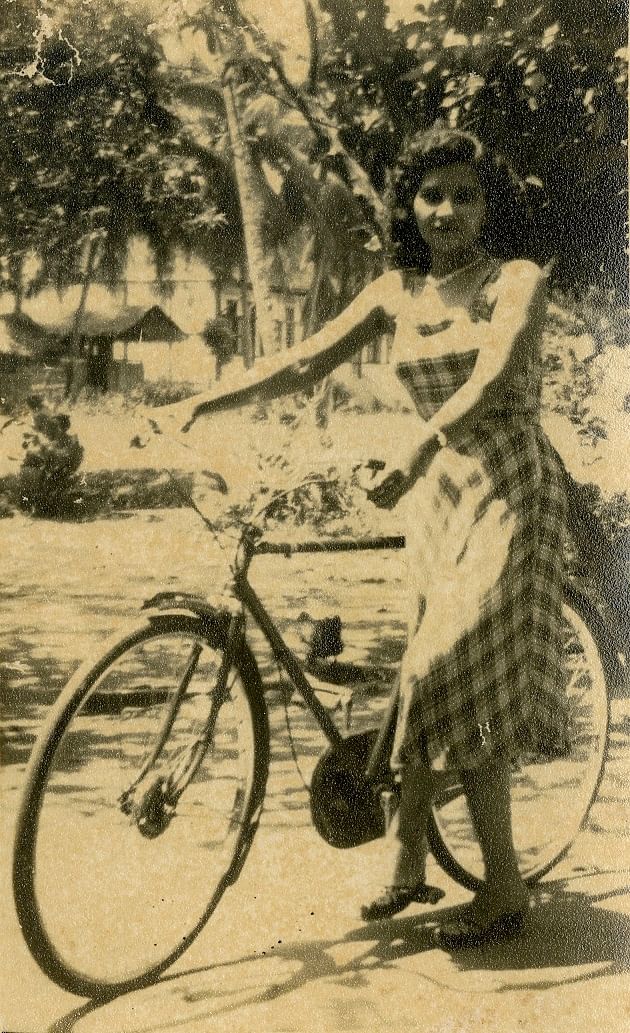Whenever Christmas comes around, I think of the Troll dolls I got as a present when I was eight years old. A gift my grandmother gave me - and which I immediately threw away.
You could say they've been haunting me ever since.
Back in 1970, I got it into my head that I really, really wanted a doll for Christmas. By that, I meant not the second-hand scraps of toys we had, but a doll - new and store-bought with still-shiny hair you could comb and a dress you could take off and put back on, and even arms and legs that moved.
Now, having that wish was strange, seeing as I knew we didn't get Christmas presents, because we couldn't afford them. What we got instead - my four brothers and sisters and I - were new pyjamas. Every year, it would be a set of new pyjamas that my grandmother would finish making on her Singer sewing machine in time, on Christmas Eve.
My grandmother, now, she had a hard life.
We called her "Mama" because she was our mother while our birth mother spent most of our lives in a mental home.
My grandmother's name was Elsie Ovaree, a Eurasian of the Straits Settlements and of Dutch-Indian ancestry, born during the last year of the First World War in 1918.

She married at 16 in 1934 to a poor Englishman named Brian whose real parents, surnamed Parr, had sailed back to England, leaving him to be brought up by a family named Williams, whose name he took.
Brian didn't survive to the next world war, dying of tuberculosis in 1941 soon after his fourth child was born. In the chaos of those days, with my grandmother moving her family to Singapore from Ampang in Kuala Lumpur amid the threat of war growing and fears of Japanese forces invading from the north, Brian was hastily buried. She could not find his grave after the war ended.
My father, her oldest, was six when the first bombs dropped on Singapore while the youngest of her children was just two. Like so many, they survived on the famous wartime diet of tapioca and sweet potatoes, and whatever else they could beg or barter.
Then came Bahau. Believing in the Japanese promise of a paradise in Negri Sembilan for the resettlement of the Eurasian population, they took a train north to Gemas and another to Bahau town, then trekked the last five miles, carrying all they had.
It turned out to be more of a godforsaken, mosquito-ridden internment camp in the jungle.
In Bahau, the whole family came down with malaria. With no medicine, the two youngest - six-year-old Ruby and four-year-old Veronica died. They were part of an estimated 500 settlers who perished there in 1944 and 1945.
In the post-war years, with some help from my granduncle Doug - who would scrounge up cartons of Spam and sardines from the British army - the family survived. My grandmother also worked for the British as a telephonist.

There, she caught the eye of a British soldier. Funnily enough, his name, too, was Brian and he loved her and wanted her to marry him and move back with him to England. But my grandmother's parents were against her moving so far away and she listened to them. When the British troops pulled out of Singapore, he left and they never saw each other again.
I know all this only because of old photographs in a box and the little things my Uncle Maurice would tell us. My grandmother never spoke about it - not of her lost love or the loss of her two little girls.
She carried on, looking after five grandchildren while my father supported us and his brother (my Uncle Maurice who was a hunchback and didn't work) on a non-graduate teacher's salary.
I remember how my grandmother kept the coins she had saved in a knot at the end of a handkerchief, how she would buy little bags of cake crumbs when we wanted a cake from the confectionery, how she went around to the shops whenever she had some money to pay off some of what she had owed, and how she had only five dresses.
In the weeks before Christmas, she would be extra busy, cooking huge pots of devil curry, hundreds and hundreds of pineapple tarts, and dozens of Eurasian meat pasties to sell. One year, I walked with her to Siglap market where she bought 14 chickens and I helped to lug them home.
So came that Christmas morning when I was surprised with a gift for the first time. My siblings got presents too, but they turned out to be useful things such as a stationery set and exercise books. Mine didn't feel like that. So I eagerly opened it, only to find a set of five of the ugliest dolls I had ever seen. I was so angry, I threw them away in the dustbin.

My grandmother never scolded or reproached me, not that Christmas Day or ever. The dolls were likely cheap knock-offs of Troll dolls that were all the rage then. But how she must have scrimped and saved to buy even that.
It's hard being a parent when you're struggling financially; it's even harder when Christmas or the year-end holidays come along. There are so many things - more and more each year - that money can buy.
My grandmother died of a heart attack when I was 12. I wish she had lived long enough for me to thank her for all her love and sacrifice.
So at Christmas, I think of Troll dolls with a pang. But it's not all sad. I remember, too, the Christmases when five kids danced away on the verandah of an attap house in the new pyjamas their grandmother had made for them. Full of joy.

